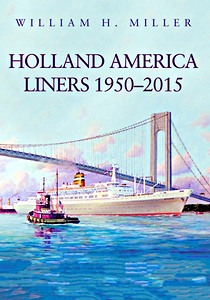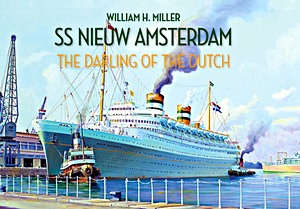Holland-Amerika Lijn - geschiedenis van een rederij
De geschiedenis van de Holland-Amerika Lijn kent vele ups en downs en leest als een spannende roman. Rotterdam was meer dan honderd jaar trots de thuishaven van deze rederij, met imposante schepen aan de Wilhelminakade die het beeld van de stad bepaalden.
Vanaf de oprichting in 1873 tot ver in de twintigste eeuw vervoerde de HAL miljoenen passagiers en veel lading. De legendarische rederij groeide uit tot een wereldwijd bekend cruisebedrijf en spreekt nog steeds tot de verbeelding.
Beroemde schepen zoals de Statendam en de Rotterdam zijn bekend bij iedereen. De Nieuw Amsterdam was legendarisch vanwege haar snelle troepentransport tijdens de oorlog. Veel emigranten staken met de HAL de Atlantische Oceaan over op zoek naar een nieuw leven. Het vrachtvervoer tussen Europa en Amerika droeg bij aan de groei van de rederij en welvaart van Nederland.
De geschiedenis van de HAL, inclusief hoogte- en dieptepunten, wordt uitgebreid behandeld in dit rijk geïllustreerde boek. Met vele niet eerder gepubliceerde afbeeldingen en een schepenlijst is het een compleet naslagwerk voor liefhebbers van de Nederlandse koopvaardijgeschiedenis.
Specificaties
| Auteur: | Nico Guns |
|---|---|
| Uitvoering: | 176 blz, 29 x 24 x 2.1 cm, harde kaft |
| Illustraties: | rijk geïllustreerd met z/w- en kleurenfoto's |
| Uitgever: | Walburg Pers BV (NL, 2015) |
| ISBN: | 9789462490413 |

Holland-Amerika Lijn - geschiedenis van een rederij
Taal: Nederlands
Beschikbaar bij bol.com en Amazon - veilig betalen en snelle levering
Nu kopen bij bol.comNu kopen bij Amazon NL
Nu kopen bij Amazon BE





